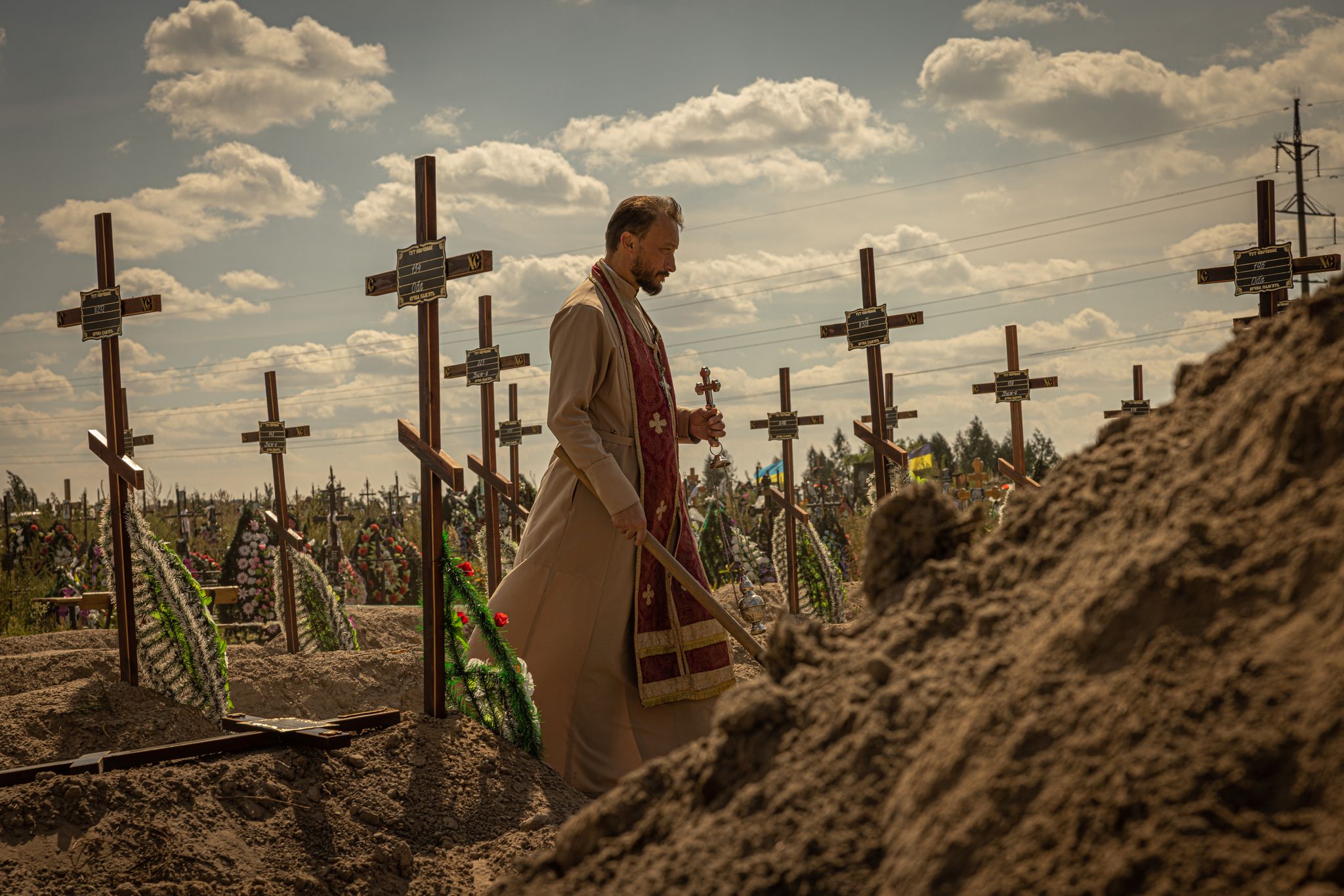How Ukraine is building a system of returning, reintegrating, and protecting children abducted by Russia

A boy on a train hugs a soft toy during an evacuation from Polohy, Zaporizhzhia Oblast, Ukraine, to western Ukraine on March 26, 2022. (Chris McGrath/Getty Images)

Iryna Tuliakova
Head of Ukraine's Coordination Center for Family Upbringing and Child Care Development
Since Russia’s full-scale invasion began, one of its most disturbing and least visible crimes has targeted Ukraine’s most vulnerable: our children. Under occupation, Russia has orchestrated the forced transfer of thousands of Ukrainian children into Russia or Russian-controlled territories. There, they face illegal adoption, involuntary Russian citizenship, and aggressive assimilation designed to sever their ties to Ukraine.
This is not a humanitarian crisis — it is a war crime. And the world has recognized it as such. In March 2023, the International Criminal Court issued arrest warrants for President Vladimir Putin and Children’s Rights Commissioner Maria Lvova-Belova, citing the illegal deportation of Ukrainian children. For the first time since WWII, a sitting head of state has been indicted for crimes against children.
The ICC concluded that these removals were deliberate and centrally organized. Russian authorities once openly celebrated the “adoption” of Ukrainian children in propaganda campaigns. Even after international scrutiny, the practice continues in violation of the Geneva Conventions.
Ukraine has chosen a different path — one grounded in law, humanity, and dignity. We launched the Presidential Initiative, Bring Kids Back UA, to return and reintegrate children forcibly taken by Russia. It brings together government ministries, civil society, and international partners to act in each child’s best interests. And in May 2024, Ukraine formalized this effort through Resolution No. 551, which established a national mechanism to identify, return, and protect abducted children.
"The priority is to return children to their biological families. When this isn’t possible, they are placed in foster or adoptive families."
At the heart of this system is the individual return plan — a personalized document that considers each child’s age, health, legal status, family ties, and the specific circumstances of their deportation. This ensures not just repatriation, but real reintegration.
From the moment a case is reported, a coordinated network engages: the Social Policy Ministry, Security Service of Ukraine, Prosecutor General’s Office, Migration and Border Services, among others. Each has a defined role. The priority is to return children to their biological families. When this isn’t possible, they are placed in foster or adoptive families.
These are not policy abstractions — they are personal realities. One teenage girl, returned from Kherson, had been living alone after her mother’s death. She didn't trust adults and resisted all offers of placement. Only after several attempts did she connect with a large foster family. Today, she calls it her own. Another boy, forcibly taken to Russia in 2022, was enrolled in a Russian school while his aunt changed his citizenship. All the while, he dreamed of returning to his older brother in Kyiv, a wounded soldier. Thanks to coordinated action, the brothers now live together and are rebuilding their future.


The work does not stop at the border. Return is only the beginning. Reintegration requires intensive social support: medical care, psychological counseling, educational adaptation, and legal documentation. The Coordination Center for Family Upbringing and Child Care Development, which I lead, helps manage this process across the country. We work with local authorities and families to ensure each child receives not just care, but connection.
We also prepare communities for the return of children. When families cannot take them back, we help identify new foster or adoptive parents — people ready to offer not just shelter, but love. These are not temporary solutions. Family-based care is our national strategy and a pillar of our broader reform to eliminate institutionalization.
This reform was underway before the war, but 2022 changed everything. Suddenly, children were not just at risk of neglect — they were targets of abduction. Ukraine’s Strategy for Ensuring Every Child’s Right to Grow Up in a Family Environment was adapted to wartime conditions. It outlines six strategic goals:
- strengthening the capacity of families with children,
- developing family-based forms of care,
- reintegrating children who have been evacuated, forcibly transferred or deported,
- transforming residential institutions,
- supporting young people with experience of alternative care,
- establishing conditions for engaging society in supporting family-based care.
We are not just rebuilding systems. We are defending Ukraine’s future. The return of every child is a moral act and a strategic one. Each restored identity is a rejection of violence. Each reunited family is a step toward justice.
Russia aims to destroy Ukraine’s future by stealing our children. Ukraine is responding with law, compassion, and unrelenting resolve. We do not lose our children. We bring them home — and ensure they never have to leave again.











